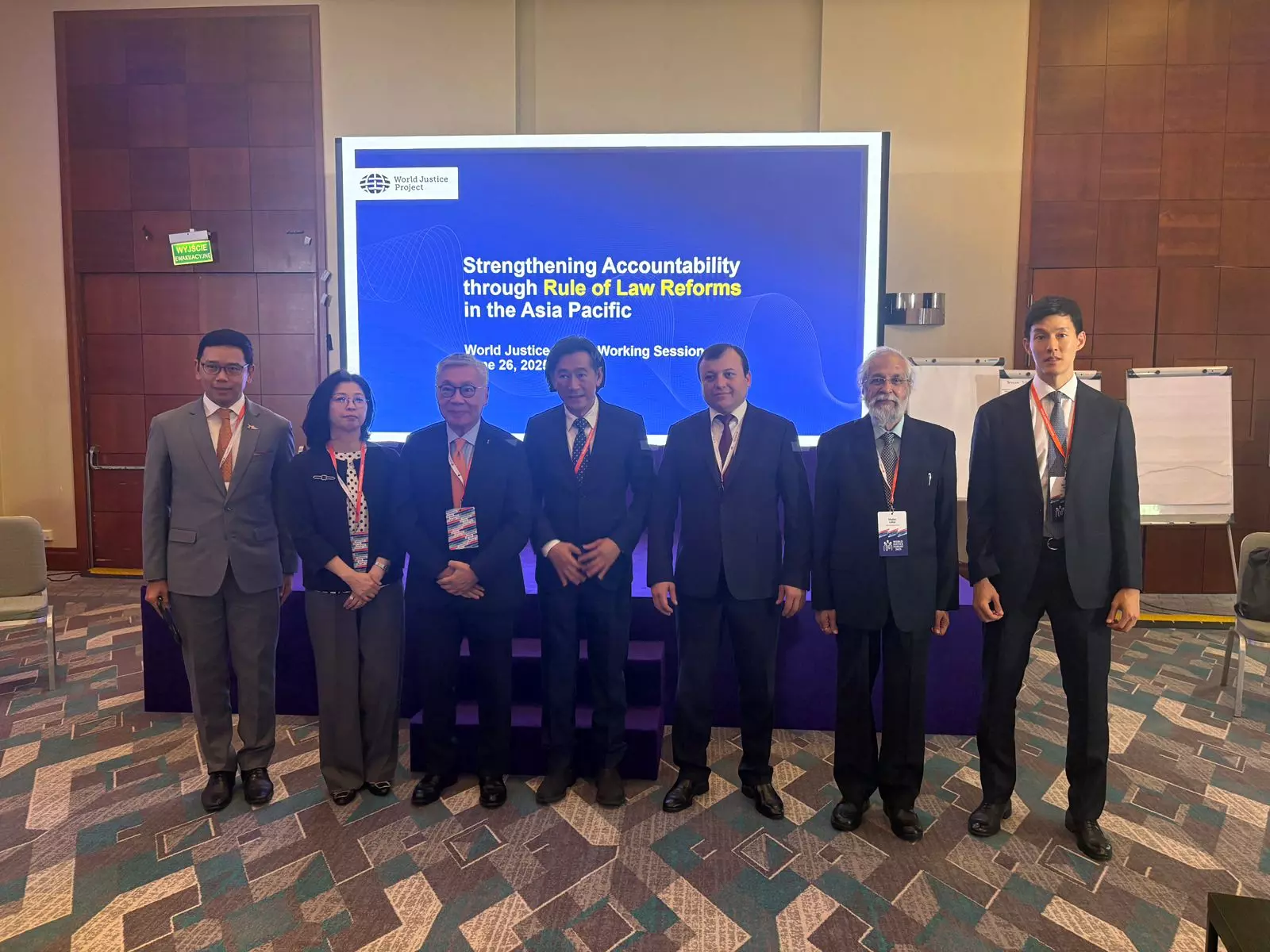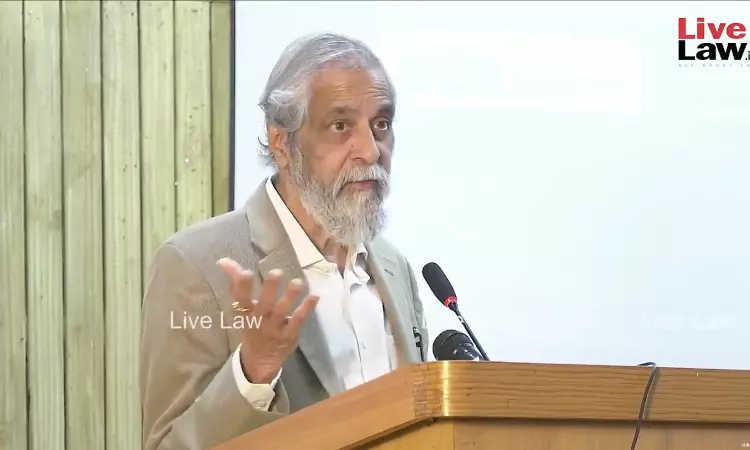- Home
- /
- Top Stories
- /
- At World Justice Forum, Ex-SC Judge...
At World Justice Forum, Ex-SC Judge MB Lokur Raises Concerns Over India's Low Rank At Rule Of Law Index
LIVELAW NEWS NETWORK
6 July 2025 11:45 AM IST
Former Supreme Court Justice Madan Lokur highlighted concerns surrounding judicial independence and advocated for essential judicial reforms in India during his participation at the World Justice Forum, held in Warsaw from June 24-26. Participating in a distinguished panel titled "Strengthening Accountability through Rule of Law Reforms in the Asia Pacific," Justice Lokur joined...
Former Supreme Court Justice Madan Lokur highlighted concerns surrounding judicial independence and advocated for essential judicial reforms in India during his participation at the World Justice Forum, held in Warsaw from June 24-26. Participating in a distinguished panel titled "Strengthening Accountability through Rule of Law Reforms in the Asia Pacific," Justice Lokur joined international legal experts to address pressing challenges facing judiciaries across the region.
Justice Madan Lokur, who retired from the Supreme Court in December 2018, was joined on the panel by esteemed participants, including Nozomi Iwama, Deputy Director General of the Japan International Cooperation Agency; Jaewoo Jung, a Judge from South Korea; Karimov A. Nishanovich, Deputy Minister of Justice of Uzbekistan; and Dr. Phiset Sa-ardyen, Executive Director of the Thailand Institute of Justice. The conversation was moderated by Srirak Plipat, the World Justice Project's Asia Pacific Regional Director.
In his opening remarks, Justice Lokur voiced concern regarding India's ranking at 79th among 142 countries in the World Justice Project's Rule of Law Index, underscoring that such a ranking raises serious alarms about the state of judicial independence and rule of law in India. He emphasized, "Independence of the judiciary is of utmost importance. It has been recognized as one of the essential features in the basic structure of our Constitution."
Addressing systemic issues, Justice Lokur expressed concern over governmental interference in judicial appointments, highlighting instances where recommendations made by the Supreme Court Collegium have been stalled without sufficient cause. He described such practices as deeply unfortunate and detrimental to the integrity and independence of the judiciary.
"We all need to stand up for the rule of law, the independence of the judiciary, and the legal fraternity," Justice Lokur urged the international audience, stressing collective responsibility to uphold these essential democratic principles.

Justice Lokur delved into critical issues such as allegations of corruption within the judiciary and increasing executive interference as primary factors contributing to India's declining international standing. "Judicial corruption erodes public faith in the legal system and poses a significant threat to the rule of law," he emphasized. He advocated for establishing independent and transparent mechanisms to address judicial corruption effectively.
Justice Lokur referred to a recent recommendation by the Supreme Court for the removal of a judge, following a troubling discovery of a substantial amount of burnt cash at his residence. Justice Lokur referred to another allegation of serious misconduct and insisted that urgent action is required to prevent further erosion of public trust and to preserve the integrity of the judicial system.
Justice Lokur pointed to politically motivated failure to act, illustrating selective executive inaction regarding judges perceived as ideologically aligned with those in power. Such selective inaction undermines judicial impartiality and erodes democratic values, he argued.
"The executive in India frequently fails to act against judges deemed close to their ideology, creating a dangerous precedent and severely impacting judicial independence," Justice Lokur warned.
Additionally, Justice Lokur addressed the perennial issue of case backlog within the Indian judicial system. Recognizing the enormity of the challenge, he highlighted proactive judicial measures aimed at reducing pendency, including increased use of mediation and alternative dispute resolution mechanisms. These approaches have demonstrated potential to significantly reduce caseloads and ensure timely access to justice for citizens.
The panel discussion provided an essential platform for sharing experiences and strategies to bolster rule of law across Asia Pacific nations. Contributions from international counterparts enriched the dialogue, with Justice Jung of South Korea being particularly frank about cases of corruption in both the executive and judiciary in his country. Panelists underscored that issues of judicial accountability and independence are indeed global concerns requiring shared commitment and cooperation.



